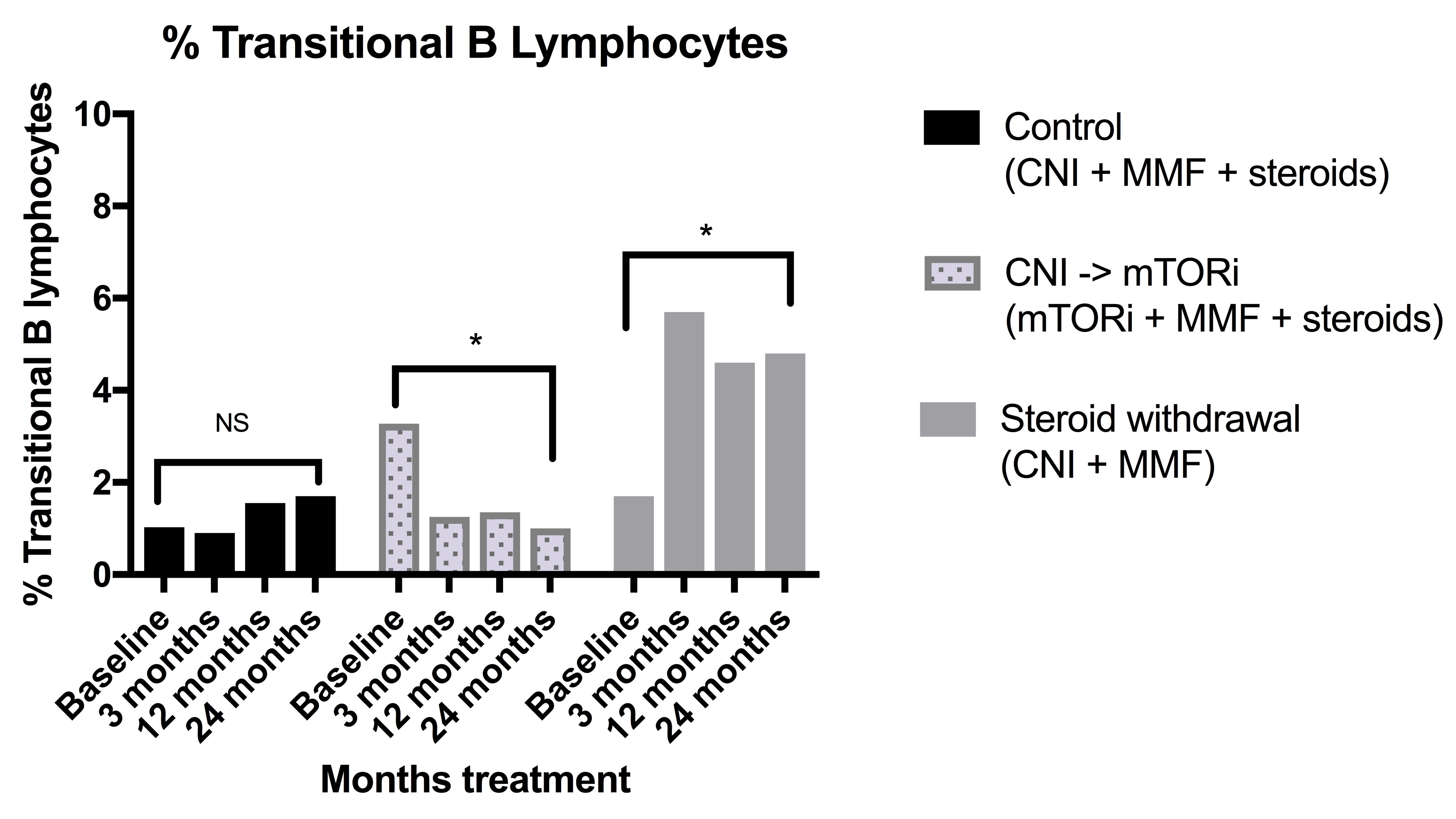Different Effects on Transitional B Lymphocytes after Conversion to mTOR Inhibitors or Steroid Withdrawal in Renal Transplant Recipients
Laura Llinàs Mallol1, Dolores Redondo Pachón1,2, Dàlia Raïch Regué1, Jose Yélamos3,4, María José Pérez Sáez1,2, Marisa Mir1, Miguel López Botet3,4,5, Julio Pascual Santos1,2, Marta Crespo Barrio1,2.
1Nephropathies Research Group, Hospital del Mar Medical Research Institute, Barcelona, Spain; 2Nephrology Department, Hospital del Mar, Barcelona, Spain; 3Immunology Department, Hospital del Mar, Barcelona, Spain; 4Immunity and Infection Research Group, Hospital del Mar Medical Research Institute, Barcelona, Spain; 5Experimental and Health Sciences Department, University Pompeu Fabra, Barcelona, Spain
Despite high graft-survival rates during the first year after kidney transplantation, long-term graft survival is still limited. Chronic immunological rejection is the main cause of graft loss and current immunosuppressive therapies are still not able to control it. Calcineurin inhibitors (CNI) and steroids are associated with the development of side effects, which produce morbidity and may limit long-term graft survival. Conversion from CNI to mTOR inhibitors (mTORi) or steroid withdrawal pursue the challenge to reduce these drawbacks. Since transitional B cells have been linked with increased possibilities of acquiring operational tolerance, we aimed to assess whether changes in immunosuppression therapies may affect this particular subset of B lymphocytes.
We analyzed the immunophenotype of peripheral blood lymphocyte subsets before and 3, 12 and 24 months after: a) conversion from CNI to mTORi in 39 patients; b) steroid withdrawal in 21 patients; c) no changes with maintenance of CNI and steroids in 18 patients, as a control group. We found paradoxical effects of immunosuppression treatments in transitional B lymphocytes. Patients who started with mTORi therapy showed a significant decrease of transitional B lymphocytes after 3 months compared to basal condition (p < 0.001), whereas patients who withdraw steroids showed a significant increase at 3 months (p = 0.001). These results did not change with time.  Results in patients who maintained CNI therapy and steroids revealed no changes in transitional B cells compared to basal condition (p = 0.64), and consequently confirm influence of immunosuppression therapy on this particular subset of B lymphocytes.
Results in patients who maintained CNI therapy and steroids revealed no changes in transitional B cells compared to basal condition (p = 0.64), and consequently confirm influence of immunosuppression therapy on this particular subset of B lymphocytes.
These results indicate that both steroids and mTORi reduce the frequency of transitional B cells. Therefore, it is of great interest to clarify whether mTORi and steroids are hindering cell-related operational tolerance.
PI13/00598 (Institute of Health Carlos III, ISCIII).
